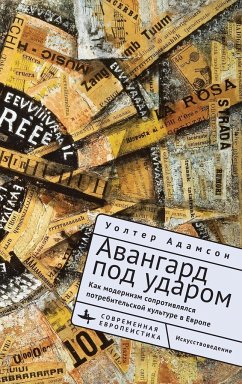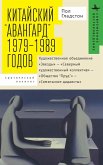This sweeping work, at once a panoramic overview and an ambitious critical reinterpretation of European modernism, provides a bold new perspective on a movement that defined the cultural landscape of the early twentieth century. Walter L. Adamson embarks on a lucid, wide-ranging exploration of the avant-garde practices through which the modernist generations after 1900 resisted the rise of commodity culture as a threat to authentic cultural expression. Taking biographical approaches to numerous avant-garde leaders, Adamson charts the rise and fall of modernist aspirations in movements and individuals as diverse as Ruskin, Marinetti, Kandinsky, Bauhaus, Purism, and the art critic Herbert Read. In conclusion, Adamson rises to the defense of the modernists, suggesting that their ideas are relevant to current efforts to think through what it might mean to create a vibrant, aesthetically satisfying form of cultural democracy.








